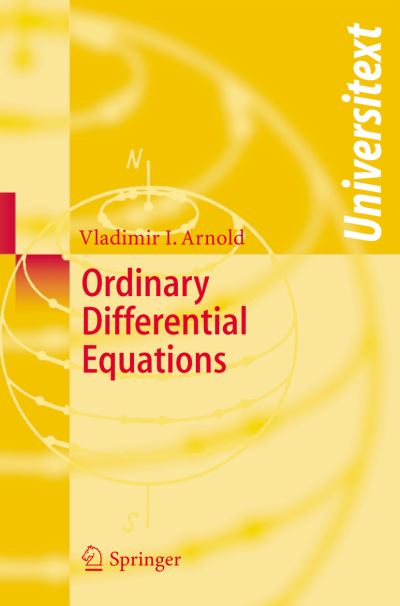
In Stock
Ordinary differential equations
Paperback
€94.24
Collect 282 Reward Points
- Reduced delivery schedule until 5th Jan
- Book Synopsis
- The first two chapters of this book have been thoroughly revised and sig- nificantly expanded. Sections have been added on elementary methods of in- tegration (on homogeneous and inhomogeneous first-order linear equations and on homogeneous and quasi-homogeneous equations), on first-order linear and quasi-linear partial differential equations, on equations not solved for the derivative, and on Sturm's theorems on the zeros of second-order linear equa- tions. Thus the new edition contains all the questions of the current syllabus in the theory of ordinary differential equations. In discussing special devices for integration the author has tried through- out to lay bare the geometric essence of the methods being studied and to show how these methods work in applications, especially in mechanics. Thus to solve an inhomogeneous linear equation we introduce the delta-function and calculate the retarded Green's function; quasi-homogeneous equations lead to the theory of similarity and the law of universal gravitation, while the theorem on differentiability of the solution with respect to the initial conditions leads to the study of the relative motion of celestial bodies in neighboring orbits. The author has permitted himself to include some historical digressions in this preface. Differential equations were invented by Newton (1642-1727).
- Product Details
-
- ISBN
- 9783540345633
- Format
- Paperback
- Publisher
- Springer, (19 June 2006)
- Number of Pages
- 334
- Weight
- 428 grams
- Language
- English
- Dimensions
- 235 x 155 x 18 mm
- Series:
- See all books in this series
- Categories: